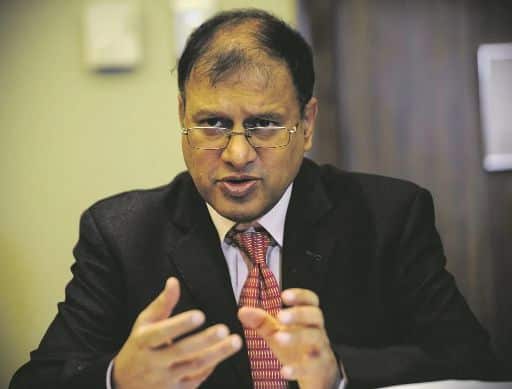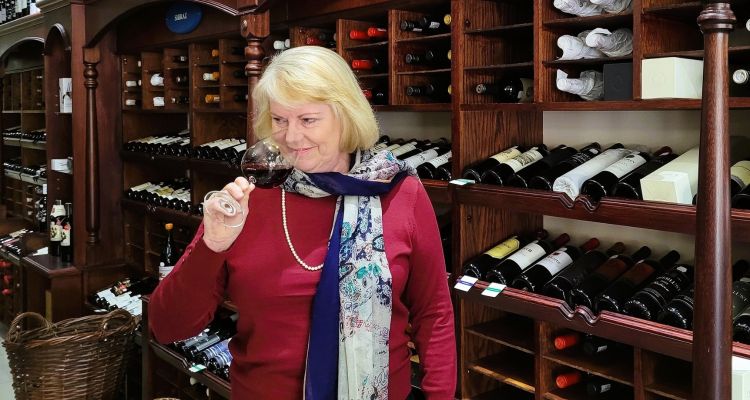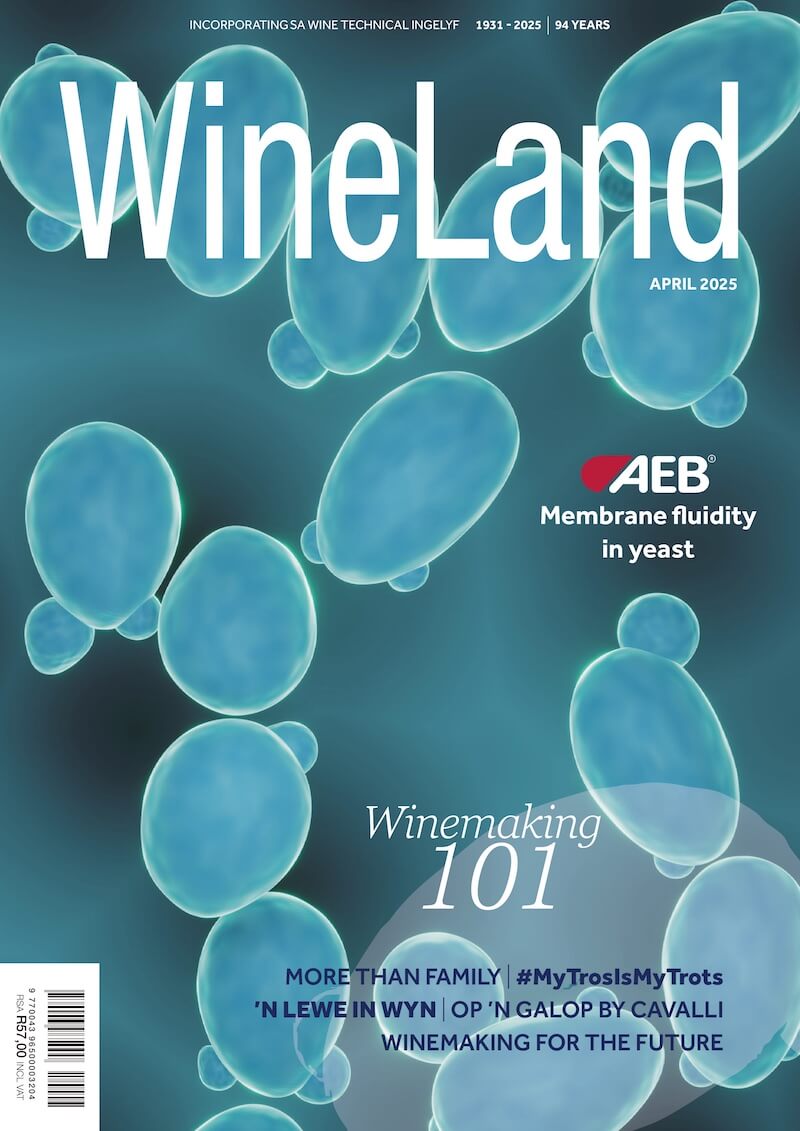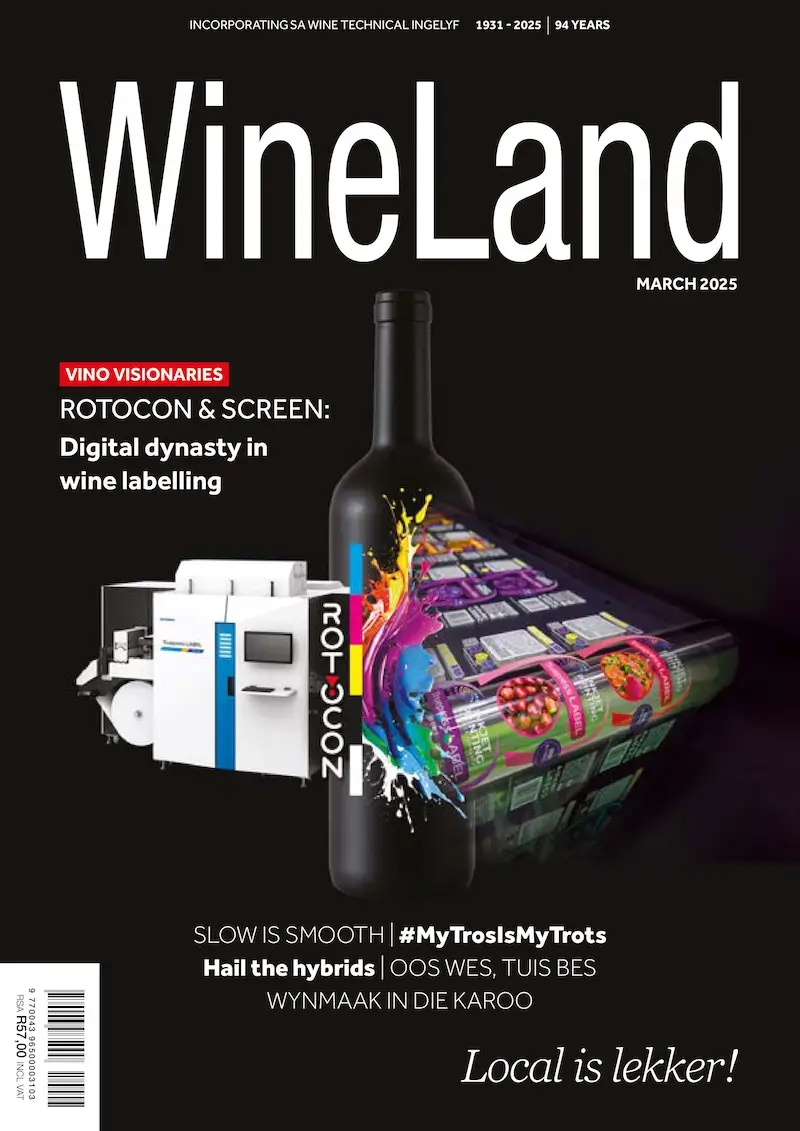Is government’s ever-increasing excise duties an effective means to curb socially harmful alcohol-fuelled activities, or is it merely juicy, low-hanging fruit for revenue collectors?
Earlier this year, finance minister Enoch Godongwana announced excise duties on alcohol and tobacco were to increase by 4.5- 6.5%. The current targeted excise duties for wine, beer and spirits are set at 11%, 23% and 36% respectively for 2022/23.
Presenting his 2022 budget speech, the minister announced a 750 ml bottle of wine will cost 17 cents more and a bottle of sparkling wine 76 cents more.
This above-inflation excise tax increase follows on the back of a 6.9% wage increase and substantial electricity and fuel price increases.These costs will most likely have to be absorbed at farm level.
In 2021, it was reported that South Africa’s liquor industry pays R2.5 billion in excise duties a month. The alcohol industry’s value chain employs about one million people and contributes R72 billion in tax and R173 billion to GDP.
Excise duty on alcohol and tobacco products, often referred to as “sin taxes”, seeks to deter people from engaging in socially harmful activities and behaviours, but also to provide a source of revenue for government.

Ismail Momoniat, newly appointed acting director-general of the treasury.
In South Africa, however, it appears to be the other way around with excise duties primarily viewed as a source of revenue for the state.
According to the South African Revenue Service (Sars), excise duties and levies are imposed mostly on high- volume daily consumable products such as petroleum, and alcohol and tobacco products and certain non-essential or luxury items such as electronic equipment and cosmetics.
“The primary function of these duties and levies is to ensure a constant stream of revenue for the state, with a secondary function of discouraging consumption of certain harmful products,” the Sars website says.
One thing that’s certain is the impact of excise duties on the value chain of production. It results in lower revenue and lower profitability for everyone, from producers and industrial manufacturers to the companies that sell taxed products and everyone that supplies anything to the taxed industries.
This in turn has a very real impact on employment and wages, which exacerbates socioeconomic problems. In South Africa, where more than 10 million people are unemployed, should we re-examine policies that limit employment opportunities?
Excise duties are not used for the purpose of addressing public health or social welfare concerns associated with the products being taxed, Daily Maverick columnist and author Ivo Vegter says.
“They go into the general treasury coffers and are used to buy unrelated goods or services such as imported luxury cars for officials or bridges to nowhere.”
Ivo says it’s not clear whether government experts know better than consumers what’s best for them or whether a one-size-fits-all policy is appropriate to influence consumer behaviour.

Excise Duty: For the greater good
We asked Ismail Momoniat, newly appointed acting director-general of the treasury, whether excise tax which forms part of the collective tax pool is being allocated or utilised for any specific socioeconomic programmes such as alcohol harm reduction.
“Excise taxes are not earmarked for alcohol harm reduction or any specific government expenditure programme but accrue to the general revenue pool, for instance, the National Revenue Fund,” he says.
“As a principle, it’s bad policy and inefficient to earmark any revenue for spending from taxes and it’s far more transparent to allocate funds to specific programmes via the budget allocation process. While there are a few earmarked taxes in South Africa – often for historic reasons – they tend to prove why such policy is inefficient and often wasteful.”
Treasury provides provincial government departments such as social development and public health with a s et budget to implement initiatives and programmes geared towards harm reduction or substance abuse.
But because excise taxes are blended into the collective tax pool, it makes it impossible to determine whether these specific funds are allocated straight from the “sin tax” kitty.
According to the department’s 2022/2023 annual performance plan, a total of R103 million is allocated towards its substance abuse-programme. The department also offers substance use disorder treatment at department-run child and youth care centres (roughly R50 million).
Esther Lewis, head of communications at the Western Cape department of social development, highlights five initiatives, funded by the budget, for harm reduction and substance abuse in the province.
First is awareness and prevention. “This service is specifically related to prevention in the context of foetal alcohol spectrum disorders (FASD),” she says. “Three specialist organisations are funded to provide the services in areas where there is a high prevalence of FASD.”
Early intervention is a service that’s rendered to people and families where there’s not yet an onset of dependency. The services are targeted to prevent dependence on a substance. “In the Western Cape, there are currently 21 early- intervention service sites available and funded by the department,” Esther says.
Due to the high demand for services in the substance use disorder field, provisions are also made for community-based treatment to expand on the availability of these services in communities. “A structured programme is available at the sites and harm-reduction community- based interventions also form part of community-based treatment models, especially opiate substitution therapy programmes,” she says. “There are 34 community-based treatment sites available across the province.”
In-patient treatment is residential- based treatment provided by a multidisciplinary team. A total of six in-patient treatment facilities receive funding to provide services in the Western Cape. “The current bed capacity for in-patient treatment per annum is 500 for adults and 150 for young people in the province,” Esther says.
Aftercare and reintegration are professional services rendered by the department to users who have completed formal treatment. “The services are targeted to increase sobriety maintenance, personal growth and proper social functioning,” Esther says. “There are 17 sites across the province where aftercare services are provided.”
In addition to the direct services to the community, the department’s budget also makes provision for 49 bursaries and project costs at three higher-learning institutions for the specialist training of professionals currently providing direct substance use disorder services to communities.

Is it working?
The idea of using excise duties as a means of raising revenue, as well as a policy instrument to reduce demand is, according to Ivo, “self-contradictory.” He says the more successful government is at one, the less successful it is at the other. “The fact that Sars has declared revenue as its priority suggests that paternalistic concern for public health must take a back seat.”
Given that revenue is a priority for Sars excise tax collection, it’s surprising how little excise duties raise. Despite having doubled in the past 10 years and quadrupled since 2000, excise tax adds only R40 billion or 3% to the total budget, according to the 2020/21 budget review.
The wine and brandy industry of South Africa contributed a total of 4.4 billion in excise duty during 2021. In comparison with the department’s R150 million budget, the verdict is still out whether enough of the collective pool is allocated towards curbing the alcohol abuse problem in South Africa.
Click here to get your copy of WineLand Magazine and here to subscribe to our newsletter.













